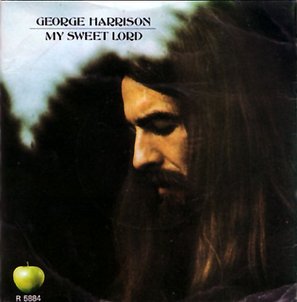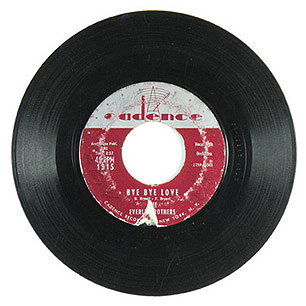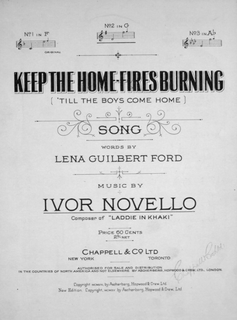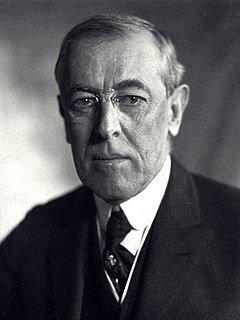Related Research Articles

George Harrison was an English musician, singer-songwriter, and music and film producer who achieved international fame as the lead guitarist of the Beatles. Sometimes called "the quiet Beatle", Harrison embraced Indian culture and helped broaden the scope of popular music through his incorporation of Indian instrumentation and Hindu-aligned spirituality in the Beatles' work. Although the majority of the band's songs were written by John Lennon and Paul McCartney, most Beatles albums from 1965 onwards contained at least two Harrison compositions. His songs for the group include "Taxman", "Within You Without You", "While My Guitar Gently Weeps", "Here Comes the Sun" and "Something".

The Traveling Wilburys were a British–American supergroup consisting of Bob Dylan, George Harrison, Jeff Lynne, Roy Orbison and Tom Petty. Originating from an idea discussed by Harrison and Lynne during the sessions for Harrison's 1987 album Cloud Nine, the band formed in April 1988 after the five members united to record a bonus track for Harrison's next European single. When this collaboration, "Handle with Care", was deemed too good for such a limited release, the group agreed to record a full album, titled Traveling Wilburys Vol. 1. Following Orbison's death in December 1988, the Wilburys released a second album, which they titled Traveling Wilburys Vol. 3, in 1990.

The 1888 United States presidential election was the 26th quadrennial presidential election, held on Tuesday, November 6, 1888. Republican nominee Benjamin Harrison, a former Senator from Indiana, defeated incumbent Democratic President Grover Cleveland of New York. It was the third of five U.S. presidential elections in which the winner did not win a plurality of the national popular vote, which would not occur again until the 2000 US presidential election.

The 1892 United States presidential election was the 27th quadrennial presidential election, held on Tuesday, November 8, 1892. In a rematch of the closely contested 1888 presidential election, former Democratic President Grover Cleveland defeated incumbent Republican President Benjamin Harrison. Cleveland's victory made him the first and to date only person in American history to be elected to a non-consecutive second presidential term. It was also the first time incumbents were defeated in consecutive elections—the second being Jimmy Carter's defeat of Gerald Ford in 1976, followed by Carter's subsequent loss to Ronald Reagan in 1980. Additionally, Harrison's loss marked the second time an elected president lost the popular vote twice, the first being John Quincy Adams in the 1820s. This feat was not repeated until Donald Trump lost the popular vote in 2016 and 2020.

Charles Edward Ives was an American modernist composer, one of the first American composers of international renown. His music was largely ignored during his early life, and many of his works went unperformed for many years. Later in life, the quality of his music was publicly recognized, and he came to be regarded as an "American original". He was also among the first composers to engage in a systematic program of experimental music, with musical techniques including polytonality, polyrhythm, tone clusters, aleatory elements, and quarter tones. His experimentation foreshadowed many musical innovations that were later more widely adopted during the 20th century. Hence, he is often regarded as the leading American composer of art music of the 20th century.

Henry Louis Reginald De Koven was an American music critic and prolific composer, particularly of comic operas.

"Something" is a song by the English rock band the Beatles from their 1969 album Abbey Road. It was written by George Harrison, the band's lead guitarist. Together with his second contribution to Abbey Road, "Here Comes the Sun", it is widely viewed by music historians as having marked Harrison's ascendancy as a composer to the level of the Beatles' principal songwriters, John Lennon and Paul McCartney. Two weeks after the album's release, the song was issued on a double A-side single, coupled with "Come Together", making it the first Harrison composition to become a Beatles A-side. The pairing was also the first time in the United Kingdom that the Beatles issued a single containing tracks already available on an album. While the single's commercial performance was lessened by this, it topped the Billboard Hot 100 in the United States as well as charts in Australia, Canada, New Zealand and West Germany, and peaked at number 4 in the UK.

"My Sweet Lord" is a song by English musician George Harrison, released in November 1970 on his triple album All Things Must Pass. It was also released as a single, Harrison's first as a solo artist, and topped charts worldwide; it was the biggest-selling single of 1971 in the UK. In America and Britain, the song was the first number-one single by an ex-Beatle. Harrison originally gave the song to his fellow Apple Records artist Billy Preston to record; this version, which Harrison co-produced, appeared on Preston's Encouraging Words album in September 1970.

Kathleen Harrison was a prolific English character actress best remembered for her role as Mrs. Huggett in a trio of British post-war comedies about a working-class family's misadventures, The Huggetts. She later played the charwoman Mrs. Dilber opposite Alastair Sim in the 1951 film Scrooge and a Cockney charwoman who inherits a fortune in the television series Mrs Thursday (1966–67).
The Hudson Dusters was a New York City street gang during the early twentieth century.
Roy Kenneth Turk was an American songwriter and lyricist, he frequently collaborated with composer Fred E. Ahlert – their popular 1929 song "Mean to Me" has become a jazz standard. He worked with many other composers, including for film lyrics. Turk was elected to the Songwriters Hall of Fame in 1970.

Charles Winslow Gates was an American politician who served as the 55th governor of Vermont from 1915 to 1917.

"Bye Bye Love" is a popular song written by Felice and Boudleaux Bryant and published in 1957. It is best known in a debut recording by the Everly Brothers, issued by Cadence Records as catalog number 1315. The song reached No. 2 on the US Billboard Pop charts and No. 1 on the Cash Box Best Selling Record charts. The Everly Brothers' version also enjoyed major success as a country song, reaching No. 1 in the spring of 1957. The Everlys' "Bye Bye Love" is ranked 210th on Rolling Stone magazine's list of "The 500 Greatest Songs of All Time".

Charles William Harrison was an American tenor ballad singer. He recorded under the pseudonyms: Hugh Donovan, Billy Burton, Charles Hilton, and Norman Terrell.

The Starlight Express is a children's play by Violet Pearn, based on the imaginative novel A Prisoner in Fairyland by Algernon Blackwood, with songs and incidental music written by the English composer Sir Edward Elgar in 1915.

"Keep the Home-Fires Burning " is a British patriotic First World War song composed in 1914 by Ivor Novello with words by Lena Guilbert Ford.

It's a Wonderful World is a 1956 British musical film directed by Val Guest and starring Terence Morgan, George Cole, Mylène Demongeot and Kathleen Harrison. It also features Dennis Lotis, a popular singer at the time. It was made at Shepperton Studios. Songs include: Rosanne, When You Came Along, Girls! Girls! Girls!, A Few Kisses Ago, and The Hawaiian War Chant.

"The Garden of Your Heart" is a song composed by Francis Dorel and Edward Teschemacher. The first and only known recording was by American Tenor Charles Harrison in 1916 for Columbia Records.

The 1916 United States presidential election in Arizona took place on November 7, 1916, as part of the 1916 United States presidential election. State voters chose three representatives, or electors, to the Electoral College, who voted for president and vice president.

The 1916 United States presidential election in Kentucky took place on November 7, 1916 as part of the 1916 United States presidential election. Voters chose thirteen representatives, or electors to the Electoral College, who voted for president and vice president.
References
- ↑ Charles Harrison bio Archived 2008-04-08 at the Wayback Machine on the Songwriters Hall of Fame site